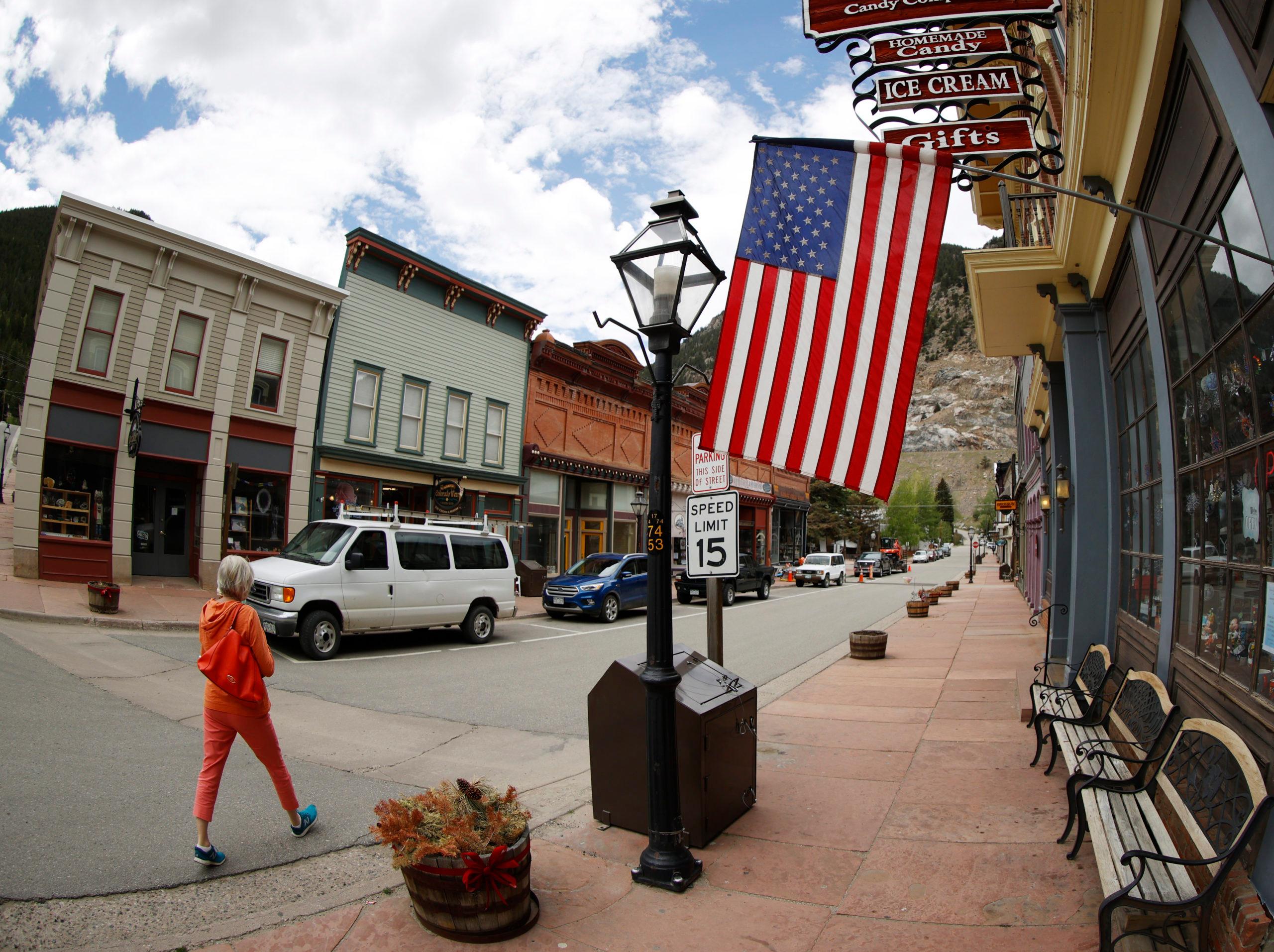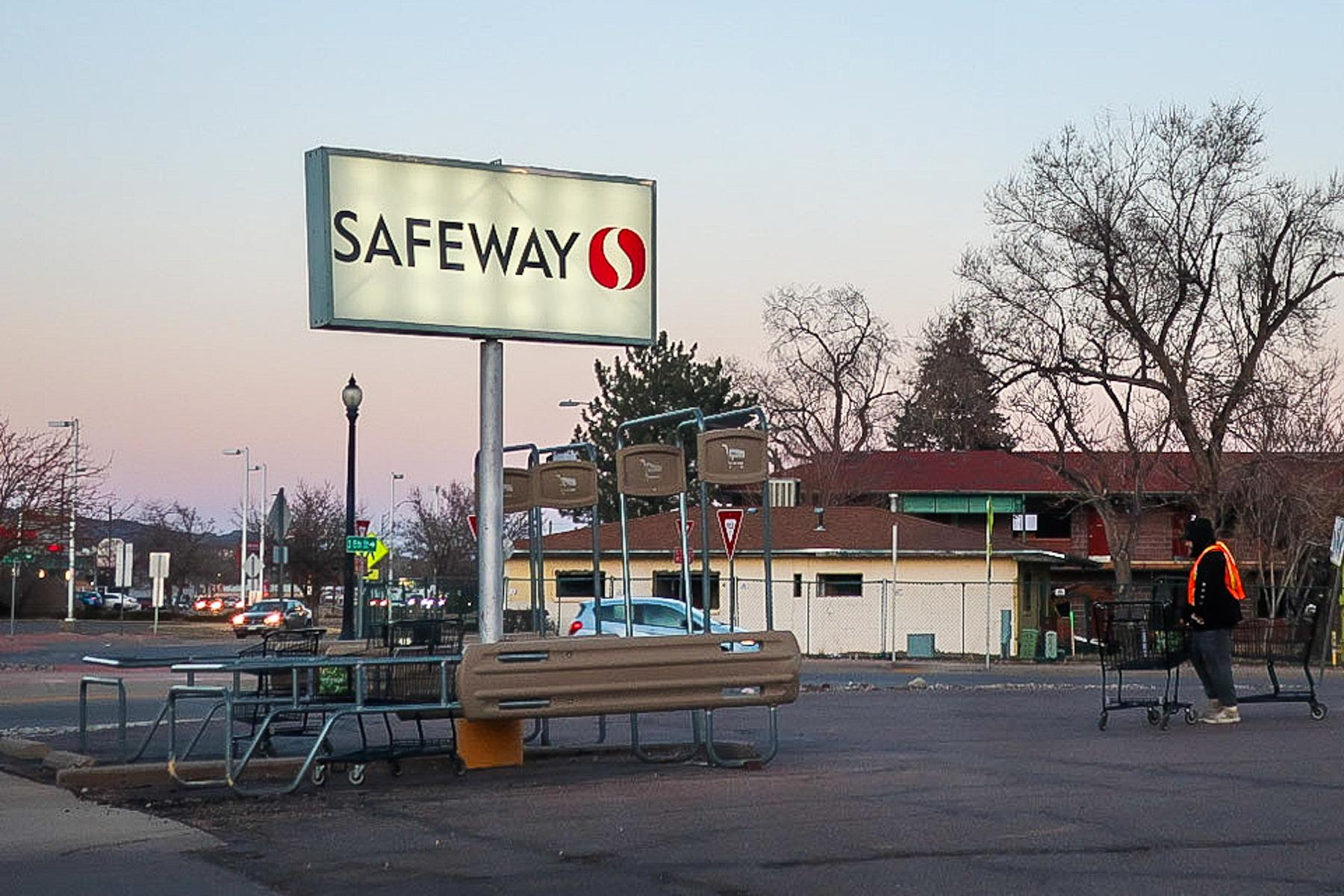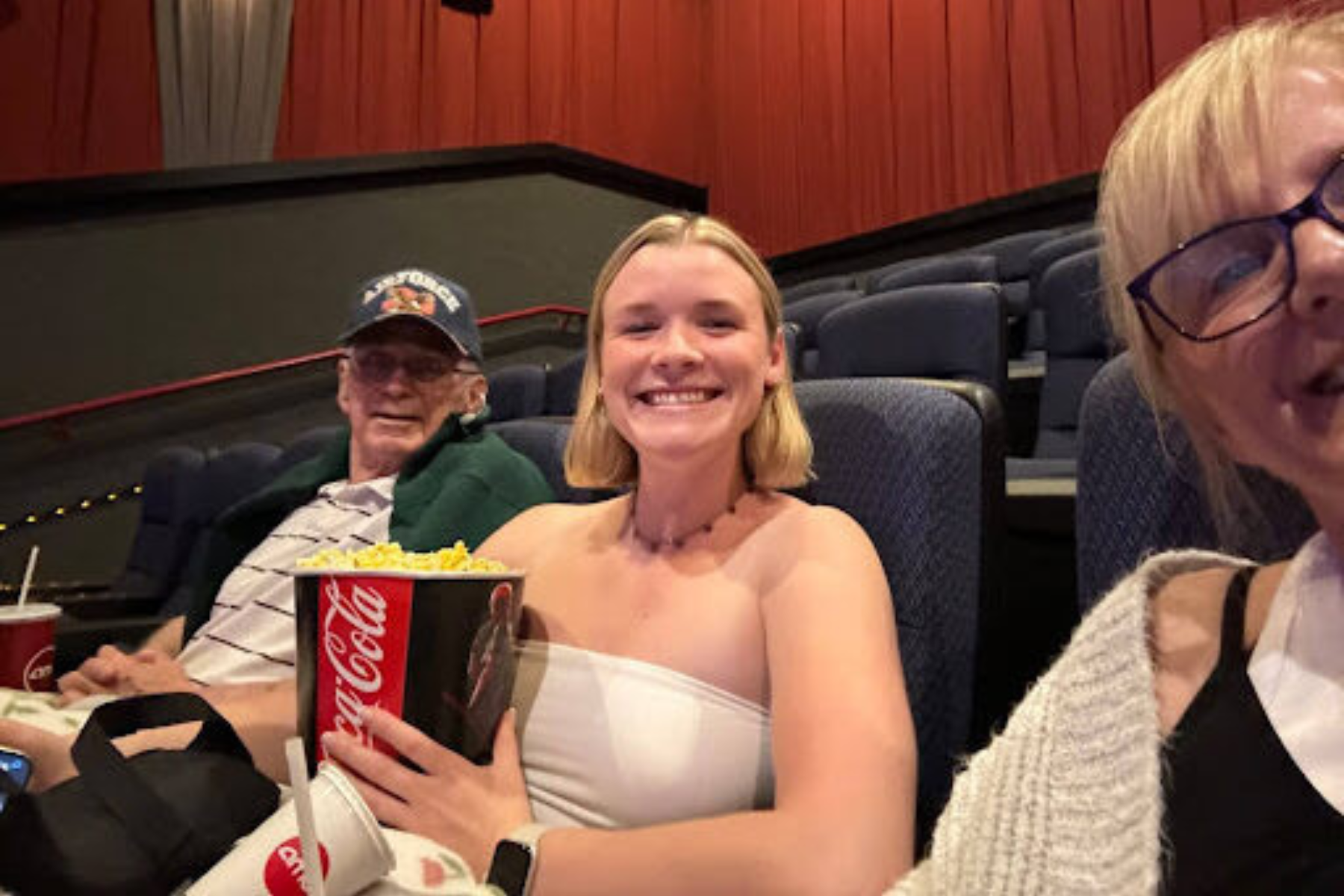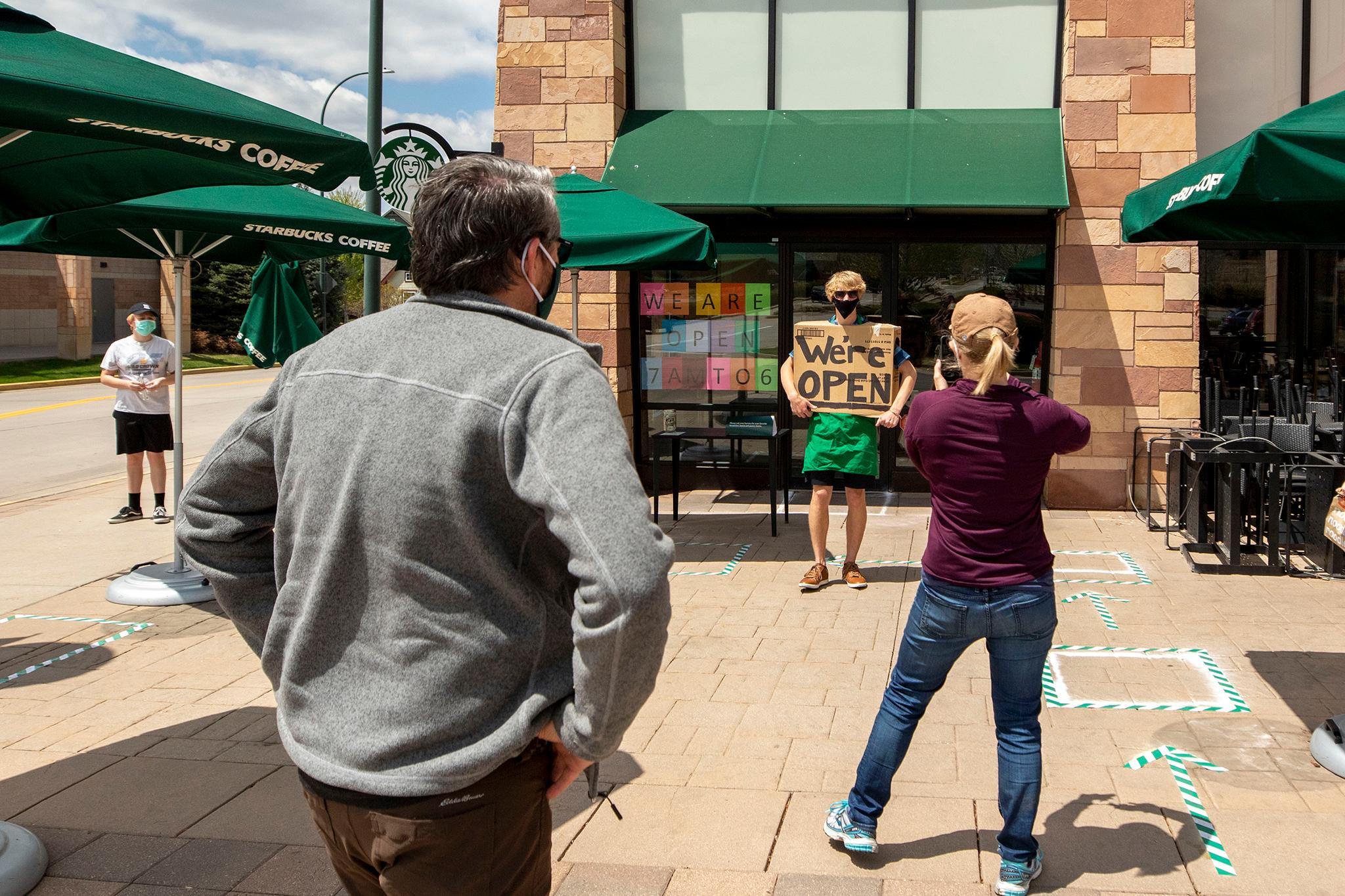
For the last few months, Christopher Winkler of Littleton has had a post-work routine that, in a pre-coronavirus world, would’ve sounded crazy. He stays in the garage, strips down to his shoes, puts on a robe, and stuffs his clothes into a trash bag.
“He comes immediately into the house, straight to the washing machine, puts the dirty clothes into the washing machine in our basement, gets immediately into the shower in the basement that no one uses but him right now,” said his wife Lorissa Goodner.
Winkler, who manages an auto repair shop, has been considered an essential worker along with thousands of grocery store workers, meat packers, bus drivers, healthcare workers and others. They’ve all had to report to work, while everyone else, including Goodner, stayed home.
But now, as much of the Denver metro area moves from stay-at-home orders to the state’s more lenient safer-at-home protocols, people like Goodner face tough decisions about how and when to leave home.
Goodner was set to return to her job as an office manager at a dental practice in Evergreen Monday — and that means she now has to do the whole strip-down-in-the-garage routine herself.
“It’s just the way it’s going to have to be until we can figure out a vaccine or something else,” she said. “We just do the best we can to keep everybody safe.”
A handful of Coloradans who talked with CPR News say they’ve gotten more comfortable dealing with coronavirus since March.
The virus initially had Goodner very worried, especially because she’s asthmatic. But she’s since learned more about it from friends in the healthcare field and by keeping an eye on the state’s data on things like infection rates and hospital capacity. The state’s hospitals have yet to fill completely, she noted.

“Hopefully it stays that way,” she said.
That success has been due, in part, to the social distancing mandated under the state’s stay-at-home order. Its continued success will depend on the precautions Coloradans take under the safer-at-home order.
Goodner’s office, she said, has implemented a variety of precautions, and even installed UV lights that have been shown to knock out airborne pathogens. All of that helped temper her fears enough to go back to work herself and send her daughter, Lorelei, back to pre-school.
In the Roaring Fork Valley, where coronavirus made an early appearance in Colorado, Brion After reopened his Carbondale shoe store last week after seeing sales drop by about 70 percent. Like Goodner, he has kept an eye on local cases and hospital capacity. He also noticed that shelves in the grocery store weren’t bare anymore.
“On top of that, I started to see the community changing,” he said. “All of a sudden, I’d go by parks and see people playing basketball in parks that were closed. I saw more people out.”
And yet those people were also still wearing masks and staying away from each other.
“It just made you feel like, ‘OK, everyone is taking this seriously,’” he said.
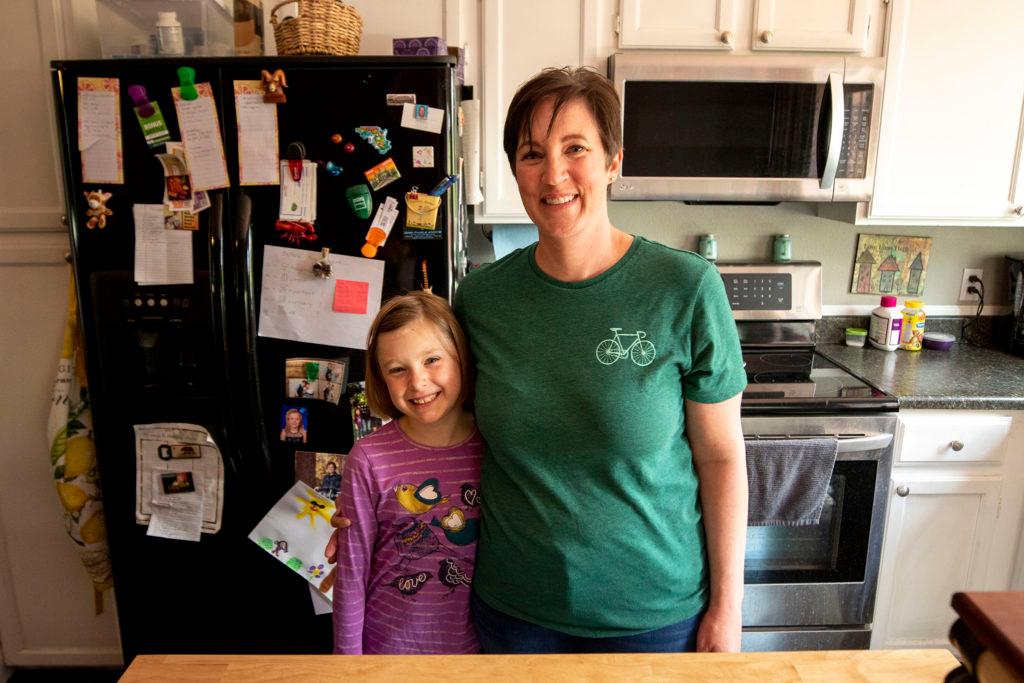
So he talked with his employees and reopened last week, with new cleaning procedures and social distancing measures in place.
“The most important thing is, as a business owner, I don’t want this to flare back up,” he said.
Amanda Brodnax, a Highlands Ranch resident who manages Colorado Infectious Disease Associates, said she’s now comfortable enough with coronavirus that she got her daughter Annelise a haircut a week ago.
“I told her she was going to have to wear a mask to the haircut and she didn’t even bat an eye,” Brodnax said. “She was protected, I was protected, and when we got back in the car we used Purell. It’s just kind of a new normal for us.”
But a recent nationwide survey suggests that most Americans are concerned their states will lift restrictions too quickly.
That includes Rashad Broadnax of Arvada — no relation to Amanda Brodnax. He is a massage therapist, and his employer asked him to come back last weekend. He told her no, and that he wasn’t coming back to work until June.
“I just want to see what happens, if there’s going to be a second wave -- which I think there will be,” he said.
Broadnax said his boss did put some safety measures in place, like checking peoples’ temperatures and having clients wait in their cars until it’s their turn. But massage therapy is an inherently physically close business and those precautions weren’t enough to sway him.
“If somebody has it and they don’t know, that’s a problem,” he said.
Broadnax could lose his unemployment benefits because he’s refusing to work. So he said he’ll probably start looking for a new, safer job. It’s not his own safety he’s worried about; his fiance and oldest son both have asthma. Their safety, he said, is more important than a paycheck right now.

